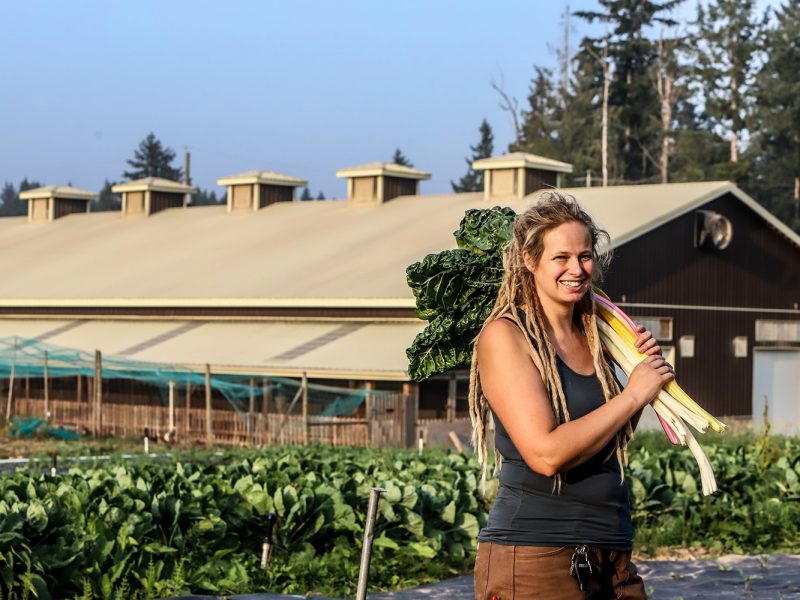A year after a historic heat dome sent temperatures soaring, all of BC is at drought level 0 on the province’s six-level drought scale.
An abundance of moisture and cool temperatures this year has made it a washout for drought.
A year ago, six basins were already at drought level 3 and the Salmon River was at level 4. Of the province’s 34 water basins, just 10 were ranked as unimpacted by drought.
Drought conditions deepened as summer rolled on, with the Kettle, Salmon River and West and East Vancouver Island basins enduring multiple weeks at drought level 5.
But the year hasn’t been without its challenges for growers.
“Growing vegetables this year has been absolutely terrible. It’s been hands-down the worst year that we’ve had on the farm so far. I don’t feel that the weather is necessarily too extreme or out of the ordinary, but it’s been frustrating trying to get on the land,” says poultry and vegetable producer Cammy Lockwood of Lockwood Farms in Cobble Hill.
“When we are able to, we’ve had a lot more severe pest issues this year because the moisture has been so late. Things like slugs and flea beetles just love all that moisture. As soon as we have a crop in, we’re struggling to keep it alive.”
During last year’s extreme heat, Lockwood and her husband James lost about 4,000 heads of lettuce and called the fire department to spray down their barn roofs to try and keep their 6,000 laying hens alive. Their well pump struggled to keep up with demand.
In addition to dealing with excessive moisture, Lockwood has also noticed a lack of pollinators in their outdoor market garden and greenhouse. While egg production has been steady, the ongoing avian influenza outbreak has the couple on edge.
“I suspect it’s due to the late spring that it has continued on. Usually, it kind of clears up at this stage, but we’ve had to continue to keep the birds inside for the summer,” Lockwood says.
Her birds have been spared so far but she urges small-scale poultry producers to do what they can to keep their birds inside and away from wild bird populations for the benefit of all poultry producers.
It’s also been a tough growing season for Arzeena Hamir of Amara Farm in the Comox Valley.
“This has been one of the most difficult years,” says Hamir, who has been farming for two decades. “Last year with the heat dome, I lost crops like currants and raspberries that cooked on the plants because of the heat. This year I have lost probably 60% of my potatoes because they rotted in the fields from the heavy rain.”
It’s not just summer weather – or the lack of it – that’s given her grief. She says the extreme cold in late December has contributed to a 40% decrease in blueberry yields.
According to the province, Production Insurance has received “a higher than normal” number of Notices of Loss from Fraser Valley berry growers this year.
“Crop losses are likely because of challenging pollination weather this spring,” a statement from the BC Ministry of Agriculture and Food said. “Staff and adjusters are out in the field evaluating berry fields but it is still too early to determine overall crop volumes.”


 Farm status requires proof
Farm status requires proof